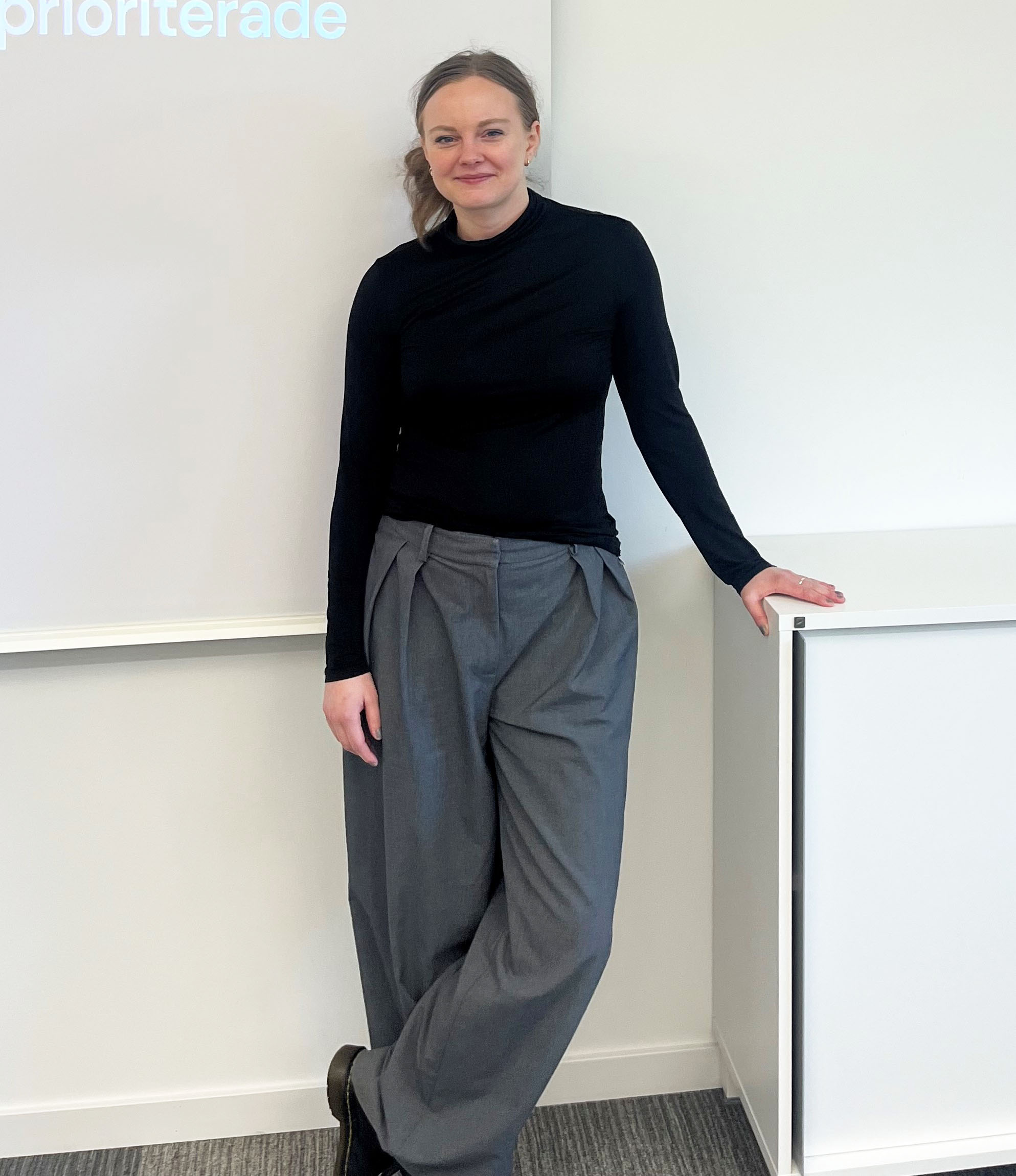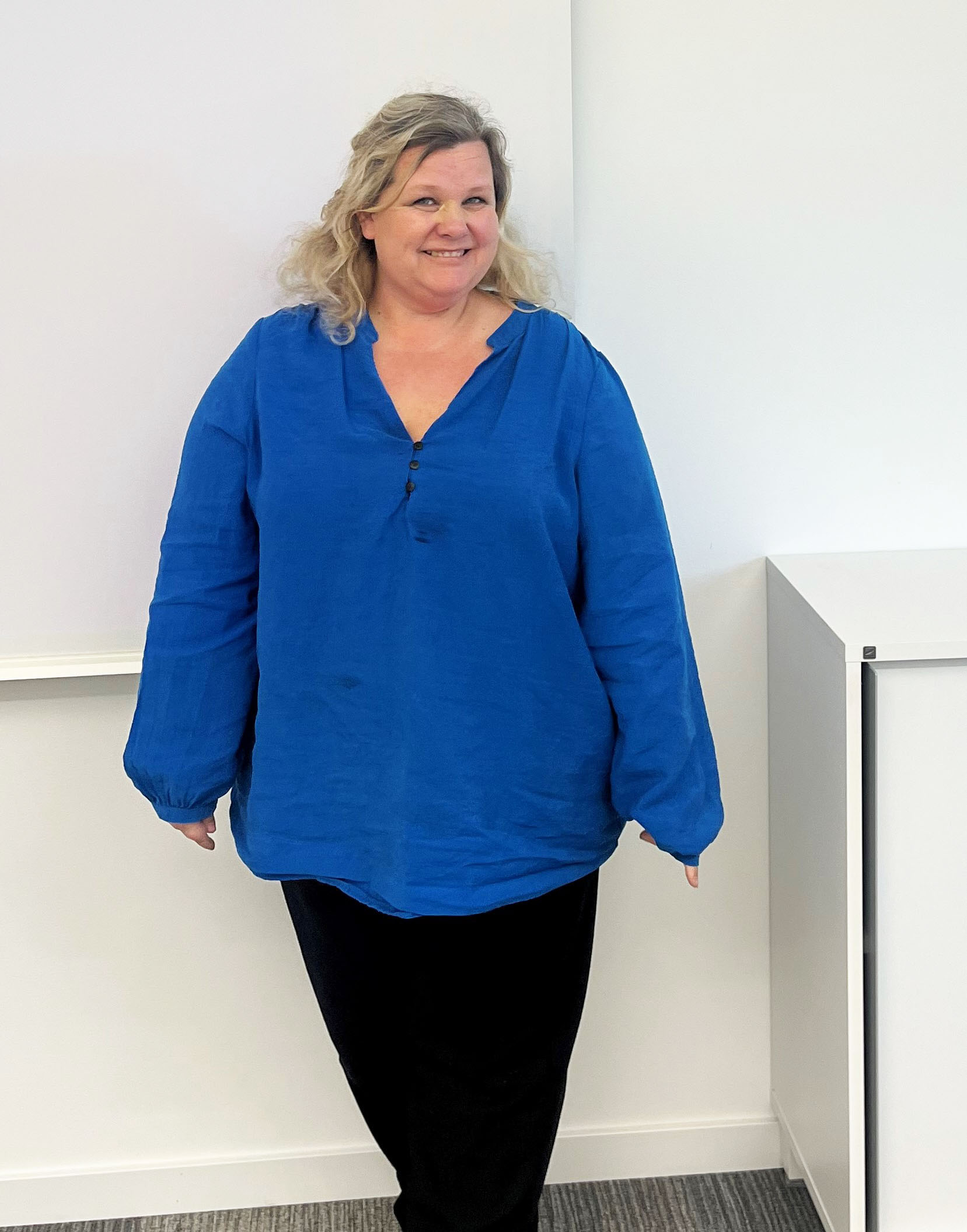We help you sharpen your information searching skills
KIB regularly offers different types of teach workshops and provide consultations for students, researchers and doctoral students, both on campus and online. Get support in writing, in academic communication and information searching: the University Library is here to help you!
Today we meet Lovisa and Lina, teaching librarians in information searching, at KIB.

Lovisa, you work as a teaching librarian at KIB, what does that mean?
– It means that I teach information literacy to KI's students at undergraduate, graduate, and postgraduate level. information literacy is a broad concept that in general is about the ability to search, select and evaluate information.
Me and my colleagues teach how to search in different databases in the best way, why it is important to think about how to search, how to evaluate different types of sources and how to structure them in, for example, a reference management program or your final text. We live in a Googlefied society where we are all used to searching on a daily basis. But searching in a scientific context requires a slightly different approach than expecting to type in a sentence and then get exactly what you are looking for. It is important to have both a critical approach and practical skills.
During the past year, we have worked to develop our teaching of information literacy where we have chosen to implement a framework developed by ACRL (American College and Research Libraries). The framework clarifies what information literacy means through six frames. Authority is Constructed and Contextual, Information Creation as a Process, Information Has Value, Research as Inquiry, Scholarship as Conversation, Searching as Strategic Exploration. The framework specifically emphasizes the importance of developing both attitudes and practical skills in relation to information searching.
What does a teaching session that you organise usually look like?
– Each teaching session usually consists of presentations interspersed with various exercises. When it comes to the skill of searching in databases or using a reference management program, we believe that you learn best by trying yourself. My role in the room is usually to problematize to get the students or researchers to move forward with their search both in terms of skills and approaches. The exercises we do usually have a focus on both skills and attitudes, that is, both practical elements interspersed with discussions and reflections on it. A personal favorite exercise is find five errors in a search string. It is usually a fun exercise to get started, but also good for us to get a picture of what level this particular group is at.
What knowledge do you think the participants will gain?
– I hope, in part, that they adopt a critical approach to scientific communication and understand the importance of thinking about why you find these particular articles and not others. It is an approach that can not only help them in their studies but also in the future in the, for many of our students, clinical everyday life. I hope that it is a critical approach that also makes them better equipped for a changing world, not least when it comes to new technologies, such as generative AI. I also hope they acquire more practical skills in information retrieval or using a reference management program. Above all, I hope they remember that we are here to help them!

Lina, you also work as a teaching librarian. What do you do when you are not teaching?
– As part of my work in teaching information searching, I work on developing our e-learning. Right now we are working on a project to take a holistic approach to the information that we publish on the web within the unit with the e-learning that exists. The goal of the assignment is to create coherence in how the unit works with learning resources and the web so that these can function as both parts and a whole, complementing each other.
Another part of the teaching is our events and our workshop series aimed at researchers and doctoral students. I am part of a group that will review how we work with our program activities and events.
What is the most enjoyable aspect of your role and mission at KIB?
– I like my work and enjoy working on development projects. There's something creative about trying to make things better, whether it's trying to make a pilot episode for a podcast, running an AI workshop or developing our scientific visualization services. I enjoy it most when I can play around with my colleagues and come up with a good solution or approach.
Did you know?
KIB completed a total of 1042 teaching hours during the year of 2023, of which 575 hours were taught by Academic Writing Support and 467 hours by librarians.
- 8.672 questions responded via email, chat and phone in the digital library support service.
- 523 hours of drop-in support in Zoom with librarians
- 456 hours of booked consultations with librarians
- 696 hours of booked support in academic writing in Swedish and English with writing support teachers.
If you would like us to get back to you, please submit your contact information in the form below along with your feeback.
